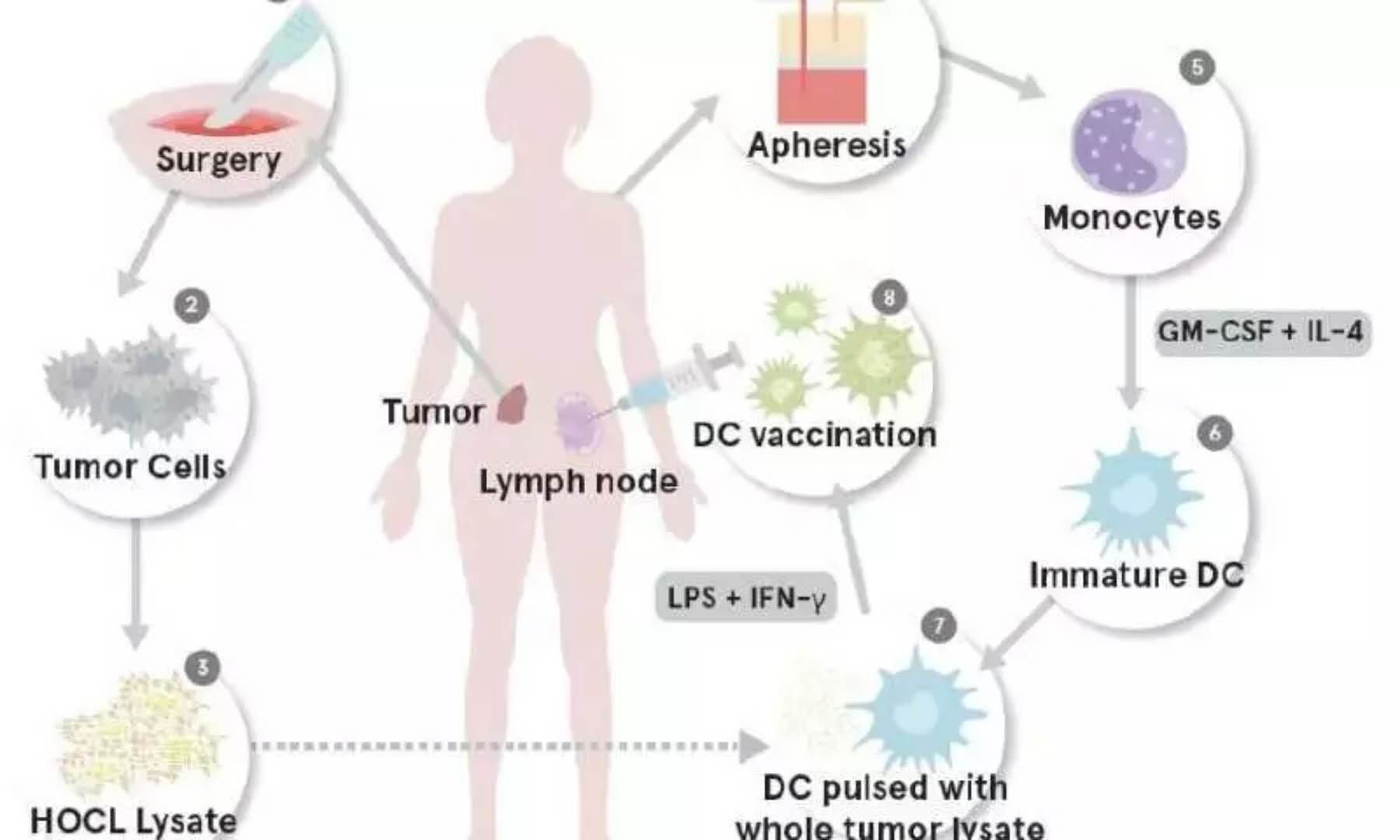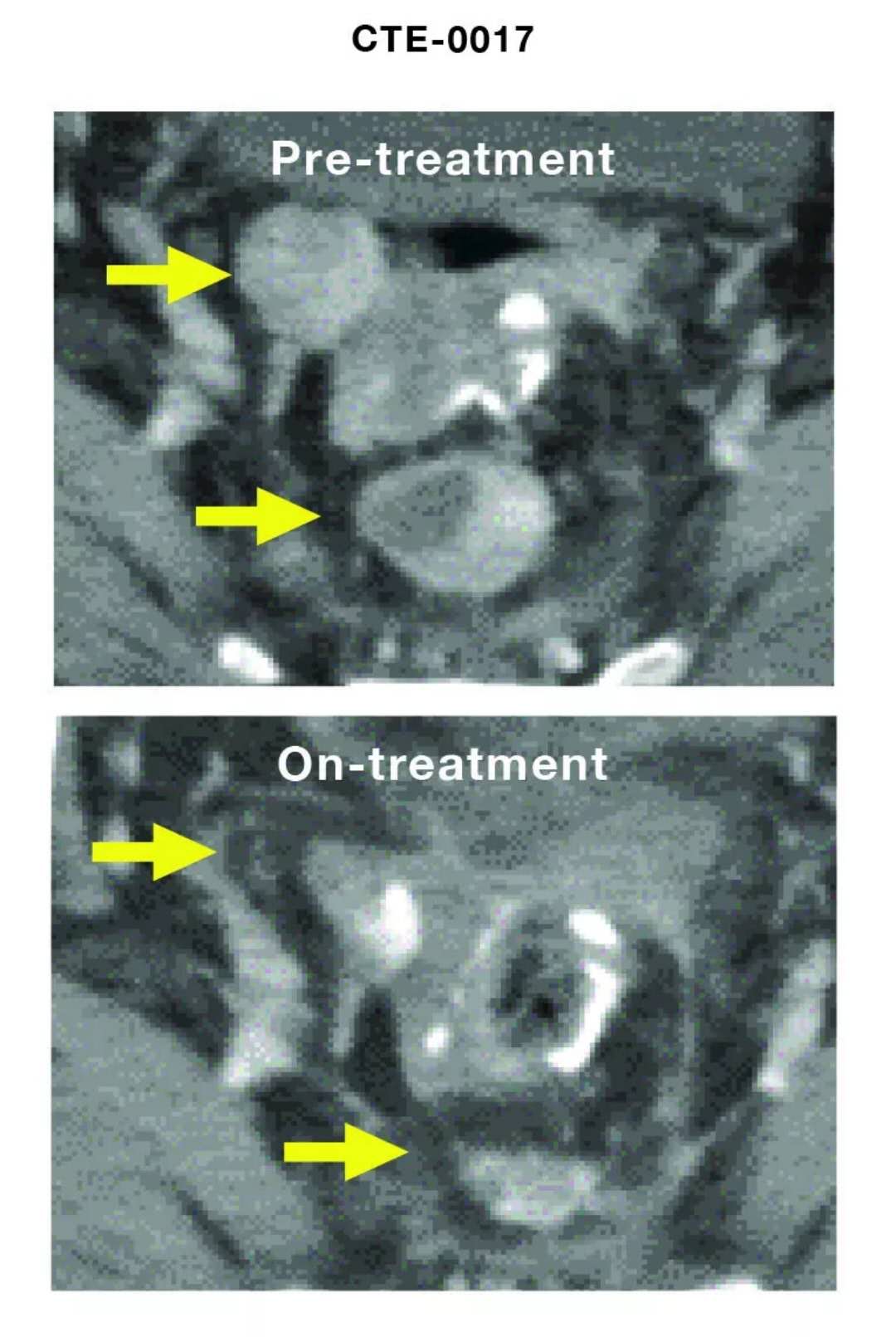Personalized cancer vaccine "getting" ovarian cancer, 2-year survival rate 100% | Science Supplement April 13, 2018 Source: Biological Exploration of: M Kee The latest experimental clinical trial at the Ludwig Cancer Institute shows that a new type of personalized cancer vaccine can standardize relapsed, stage III and IV ovarian cancer in patients undergoing routine treatment. Combine to trigger a strong immune response. What is even more surprising is that patients who respond to the vaccine have a 2-year overall survival rate of 100%. The study was led by Lana Kandalaft (left), George Coukos (middle), and Alexandre Harari (right) from Ludwig Cancer Research. The results of the study were published in the journal Science Translational Medicine on April 11th under the title "Personalized cancer vaccine effectively mobilizes antitumor T cell immunity in ovarian cancer". DOI: 10.1126/scitranslmed.aao5931 1 solve the problem For the first time in history, Lana Kandalaft said, a personalized vaccine based on autologous dendritic cells formed by oxidizing autologous whole tumor cell lysate (OCDC) has been shown to produce an immune response to new antigens. This study addresses a long-standing problem in the treatment of ovarian cancer. Ovarian tumor cells are known for expressing new antigens, which are randomly mutated proteins expressed by cancer cells that can be detected by the immune system and used as signs of disease. Immunotherapy can stimulate the killing of T cells - immune cells can detect and destroy diseased and infected cells. However, to date, malignant tumors have proven to be highly resistant to immunotherapy, including traditional cancer vaccines. Previous studies have shown that this is partly because the tumor factor secretes VEGF-A, preventing the killing of T cells from infiltrating the tumor. At the same time, ovarian tumors contain T regulatory cells (treg), which act to inhibit killer T cells. Many researchers are trying to figure out new antigens expressed by patients' tumors and synthesize epitopes or new epitopes recognized by T cells to create personalized vaccines. Although these methods are promising, they take a lot of manpower and time, so the cost is relatively high. Kandalaft and his colleagues wondered if extracting cancer cells from a tumor sample—or “the lysate of the entire tumor—may be enough to create a vaccine that trains the body to detect new antigenic epitopes expressed in the tumor. “This will be an effective way to produce personalized cancer vaccines,†says Kandalaft. The personalized vaccine is composed of the patient's dendritic cells, which were harvested from serum samples (steps 4-6). The cells were then exposed to a solution of material previously constituent from the tumor (steps 1-3) before being injected back into the patient in vaccine form (steps 7-8). 2 results are gratifying At the Perelman School of Medicine at the University of Pennsylvania, Kandalaft and Coukos devised a new way to make this vaccine – gently lysing cancer cell lysates with acid to convert their antigens A more effective immune response stimulator. Next, they collect specific immune cells from each patient and induce them to transform into dendritic cells that are capable of phagocytizing suspected bioclastics and "presenting" the antigen into T cells to stimulate the immune response. In clinical trials, researchers extracted dendritic cells from tumor cells from each patient to generate a live, personalized dendritic cell vaccine. These vaccines are then injected into the lymph nodes of each respective patient. Kandalaft said, "The lymph nodes are where dendritic cells meet T cells." CT images of two tumor lesions in the pelvis of a patient enrolled in the study (yellow arrows). The tumors regressed in size during the vaccination treatment (bottom) compared to before vaccination (top). To validate the effectiveness of the vaccine, the researchers set up three trials: one group of patients was vaccinated only with a personalized vaccine; the second group was vaccinated with bevacizumab. Bevacizumab is a standard treatment that blocks the formation of blood vessels in tumors by targeting VEGF-A - a factor that prevents T cells from entering the tumor. The third group, in addition to the vaccine, bevacizumab, also injected low-dose cyclophosphamide, a standard chemotherapy for recurrent ovarian cancer, can also inhibit the introduction of tumors to close the killer T cells. “The protocol used in the third group did produce different effects – first, in the patient's response to the immune response, and then in the process, one or even two years after the treatment, the patient's survival rate and overall Survival rates have improved," Kandalaft said. Specifically, the second group of patients had a 2-year overall survival rate of 100%. Moreover, one of the 46-year-old patients with stage IV ovarian cancer, after receiving 28 cancer vaccines within 2 years, was controlled by cancer cells and remained disease-free for the next 5 years. Kandalaft said that we did not provide patients with any new drugs that are combined with this personalized vaccine. Bevacizumab and cyclophosphamide are commonly used to treat recurrent ovarian cancer, all we do is increase the vaccine. This means that we should be able to easily integrate this personalized immunotherapy into the current standard for the treatment of recurrent ovarian cancer. Reference materials: 1) Personalized Vaccine Against Ovarian Cancer Shows Promise in Pilot Study 2) Personalized ovarian cancer vaccine shows promise in pilot trial Natural Field focus on produce Cosmetic Raw material, powder functions as an Antioxidant and whitening in cosmetic products. They can effectively treat freckles, old age spots, pigmentation, acne, delaying senescence and preventing ultraviolet radiation,absorbed by the skin through the cell membrane, and they are very effective as a cosmetic external applicatio. Skin-Whitening Cosmetic Ingredient,Skin-Whitening Powder,Skin-Whitening Extract,Skin Whitening Xi'an Natural Field Bio-Technique Co., Ltd. , https://www.naturalnf.com


